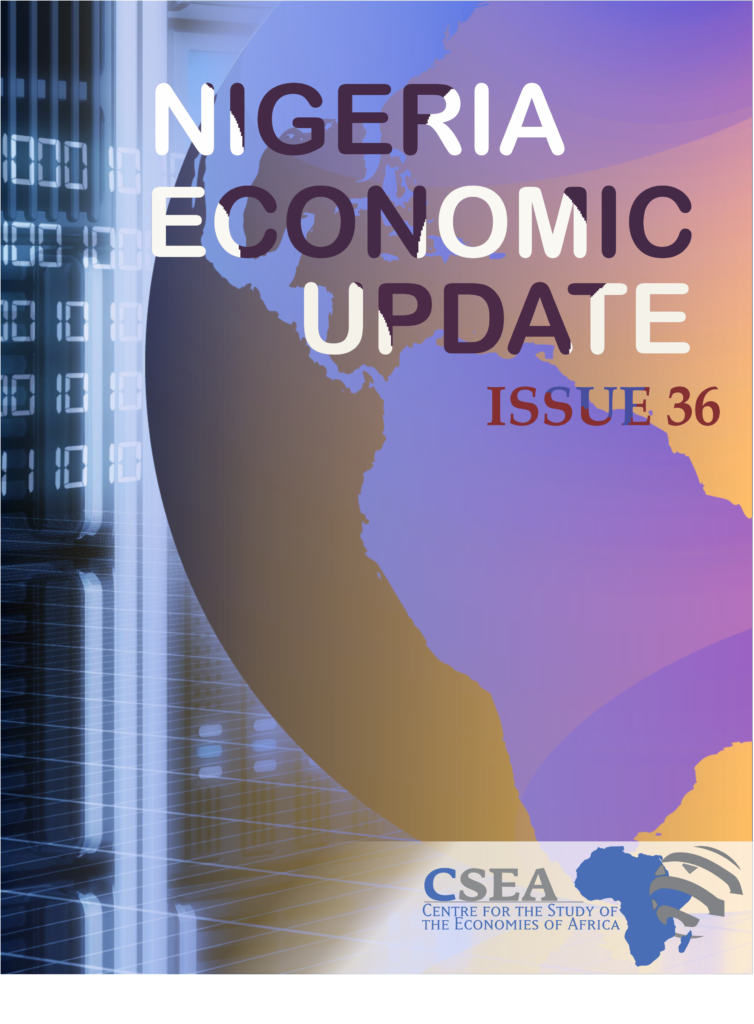Total value of Nigeria’s merchandise trade contracted in 2018Q2. Valued at N6.6 trillion1, total trade fell quarter-on-quarter by 8.9 percent from the N7.2 trillion recorded in the previous quarter. Both exports and imports declined during the period: Exports shrunk by 4.9 percent down to N4.5 trillion and was triggered by a huge fall in solid minerals and manufacturing exports. On the other hand, imports declined from N2.5 trillion to N2.1 trillion. Further review shows that crude oil accounted for 83.5 percent of total foreign merchandise trade, and trade to GDP lowered to 22.5 percent from 25.5 percent. However, there was a recorded trade surplus during the period, valued at N2.4 trillion. Going forward, there is a need for export promotion strategies, including subsidies, tax exemptions, and special credit lines to support non-oil business growth.
Macroeconomic Report & Economic Updates

September 19, 2018
Nigeria Economic Update (Issue 36)
Total value of Nigeria’s merchandise trade contracted in 2018Q2. Valued at N6.6 trillion1, total trade fell quarter-on-quarter by 8.9 percent from the N7.2 trillion recorded in the previous quarter. Both exports and imports declined during the period: Exports shrunk by 4.9 percent down to N4.5 trillion and was triggered by a huge fall in solid […]
Read →
Related
Nigeria Economic Update (Issue 6)
Latest figures of FDI flows to Nigeria show
a decline of 27 per cent from $4.7 billion in 2014 to $3.4 billion in 20152,
representing its lowest value since 2005. This decline is largely attributed to
the oil price slump, which has generally increased uncertainty in the economy,
with adverse effects on investors confidence. The fall in FDI flows was
witnessed in most resource based economies in Africa, as FDI flows to the
continent fell by 31 percent in 2015. The forex controls in place in Nigeria
has also exacerbated the uncertainty in economy, and created obstacles for both
domestic and foreign investors. Thus a review of the forex restrictions could
send positive signals to investors.
Nigeria Economic Review (First Half Report 2015)
The modest growth in the
global output witnessed in the first quarter of 2015 was driven mainly by
advanced economies, particularly the United States. Growth slowed down significantly
in emerging and developing economies, primarily natural resource-dependent
countries which were adversely affected by falling commodity prices.
